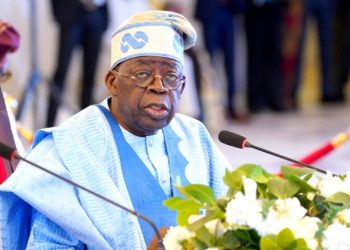The World Health Organization (WHO), has delivered medical supplies, provided logistics and deployed staff to support the national authorities in halting the spread of Ebola virus in Uganda.
This was disclosed by the health body recently, says so far, seven cases, including one death, have been confirmed to have contracted the Sudan ebolavirus, one of the six species of the Ebolavirus genus in the country.
According to WHO, “Forty-three contacts have been identified and 10 people suspected to have caught the virus are receiving treatment at the regional referral hospital in Mubende, the district where the disease was confirmed this week, making it the first time Uganda has detected the Sudan ebolavirus since 2012.
The World Body stated that mobile nature of the population in Mubende region increases the risk of possible spread of the virus, because there are gold mines in the area, which attract people from different parts of Uganda, as well as other countries.
Mubende is located in the central region of Uganda and is about a two-hour drive from the capital Kampala and sits along a busy road leading to the Democratic Republic of the Congo, as WHO deployed a technical team to the region to support surveillance, infection prevention and control and management of cases.
WHO also assisted in the activation of surveillance structures in neighbouring districts, repurposing its country-based staff to bolster the response, adding that 5 international experts will be deployed, with numbers increasing if needed.
Regional Emergency Director with the WHO Regional Office for Africa, Dr Abdou Salam Gueye said, “We are acting quickly and decisively to draw reins on this outbreak. Our experts are already on the ground working with Uganda’s experienced Ebola control teams to reinforce surveillance, diagnosis.
“Africa’s stronger homegrown emergency readiness is proving ever more crucial in tackling outbreaks such as Ebola”, Regional Emergency Director said.
Due to Uganda’s previous outbreaks and the threat of importation of cases from neighbouring Democratic Republic of the Congo that has fought several outbreaks.
WHO and the Ministry of Health have collaborated on many preparedness activities, the last such exercise was in August 2022, where nine Ugandan clinicians were trained on how to manage viral haemorrhagic fevers and are now working in the response.
WHO already has six viral haemorrhagic fever kits in Uganda, and one has been delivered to Mubende. “While there are no therapeutics that specifically treat Sudan ebolavirus species, early identification of cases and treatment of symptoms greatly increases the chances of survival.
“Current evidence shows that ERVEBO vaccine, which is highly effective against the Zaire ebolavirus, doesn’t provide cross protection against the Sudan ebolavirus.
“There are at least six candidate vaccines against Sudan ebolavirus which are in different stages of development. Three of them have Phase1 data (safety, immunogenicity data in humans) and the remaining are in the preclinical evaluation phase” WHO added.
The WHO Research and Development Blueprint team says is in contact with all developers and is leading a collaborative effort involving international experts to determine which vaccine(s) may be suitable for additional evaluation during this outbreak (and if doses with required standards are available) should more cases be confirmed.
A CORE protocol for their evaluation exists and WHO will discuss the proposed next steps with the Ugandan authorities to seek their approval.
Ebola: Seven cases, one death as WHO scales up response in Uganda
Please login to join discussion









